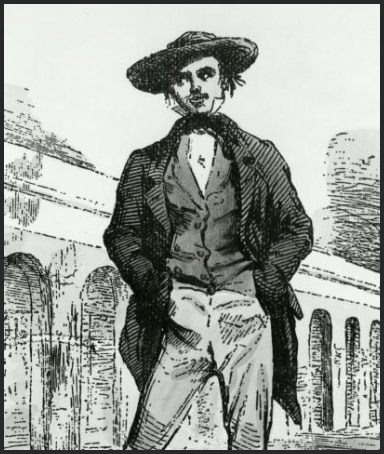What Would Thomas Jefferson Say About Disruptions on the Grounds?
Pro-Palestinian demonstrations have morphed from rallies and teach-ins into a new form of protest — tent-city encampments. These disruptive gatherings are spreading to college campuses around the country; some have turned violent and resulted in widespread arrests.
In an interview with The Cavalier Daily after a peaceful "die in" protest a week ago, Josh Rosenberg, president of the UVA chapter of the Students for Justice in Palestine, said the group might amp up its tactics. Stated the CD: "Rosenberg said he hopes to engage in more visible forms of protest, including sitting in on administrative processes or even occupying space on Grounds for longer periods of time."
We don't know what Rosenberg means by sit-ins and occupations, but such tactics sound potentially disruptive, and they might well call for a firm response from the administration. President Jim Ryan could find himself forced to choose between appeasing vocal pro-Palestinian militants or alienating University alumni appalled by spreading antisemitism.
University of Virginia student, circa 1853
Perhaps Ryan could draw spine-stiffening inspiration from the University's founder Thomas Jefferson, who dealt with student riots in 1825.
As much as one might deplore students' behavior today, it was worse 200 years ago. Students were inclined to mayhem, many carried firearms, and they adjudicated perceived slights to their honor with duels. On October 24, 1825, student dissatisfaction with 5:30 AM. lectures, long semesters, short vacations, restrictions on drinking, smoking and gambling, and the presence of European faculty erupted into a riot. Disorder degenerated into fist fights, the throwing of bricks and bottles of urine, and the thrashing of one professor with a cane.
The historical record makes note of student riots in Harvard as well, so UVA was hardly unique. But the misbehavior conflicted sorely with the eighty-two year-old Jefferson's ideal of a university dedicated to the pursuit of knowledge. He assembled a disciplinary committee that included not only himself but James Madison and James Monroe — most likely the only judiciary comprised of three former presidents. So distraught was Jefferson that when he tried to speak, he broke down in tears. Eventually, fourteen students came forward to confess their misdeeds.
Jefferson knew that disruptive behavior could not be tolerated — and he didn't allow it. Whatever the substance of the students' grievances, their manner of seeking redress was wrong. Jefferson stood his ground.
In a time of campus turmoil today, UVA's founder remains a worthy role model.

